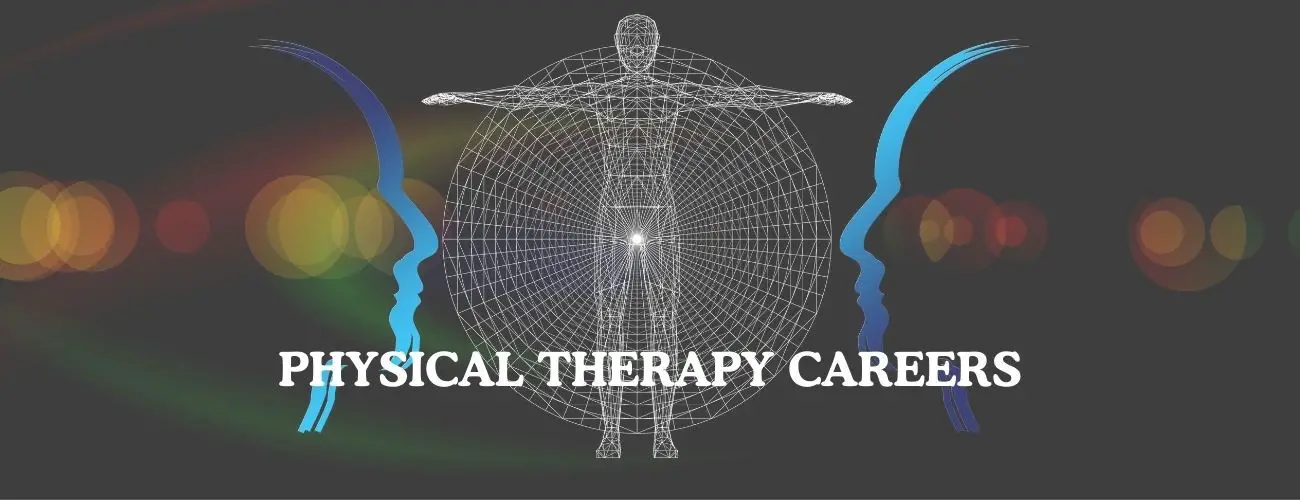Veterinarian Career
Here is an extensive career guide that elaborates on the career path of a veterinarian, the job outlook, salaries, qualifications required and much more.
Updated by Rakshitha.N on 26th August 2020
What do they do: Veterinarians treat and diagnose animals by examining and testing the health conditions, also, they create awareness about public health by working on it.
Working environment: Veterinarians usually work indoors in clinics and hospitals as well as travel to remote locations, farms, laboratories to treat animals.
How to become: to become a veterinarian, you must complete a bachelor’s degree in any major and complete a Doctor of Veterinary Medicine degree offered by an accredited veterinary college. After this, you must gain experience and obtain a license by following the state licensure requirements.
Salary offered: The average salary offered to veterinarians is about $96,127 and can range anywhere between $75,511 and $121,973.
Career Outlook: the job growth of veterinarians is estimated to grow about 18 percent during the period of 2018 to 2028 due to the increased pet-related consumer expenses.
Similar careers: Meeting educational and career requirements to become a veterinarian can also provide opportunities to pursue other alternative occupations based on your interests, career goals, and growth perspectives.
Top Veterinarian Jobs
Farrier:
Salary: $92,623
A farrier is responsible for taking care and maintenance of horses by providing the needed care for the equine foot, applying shoes when needed, and trimming the hoof to maintain proper balance. The salary can go up to $200,000 while taking care of the pleasure horses for race and show.
Animal Nutritionist:
Salary: $79,170
They are skilled in preparing nutritionally balanced rations for pets and livestock which is also included as a part of the food scientist category. Also to advance your career in this field, earning a certification as veterinary nutritionists can earn significantly higher salaries.
Veterinary Pharmaceutical Sales Representative:
Salary: $89,474
Veterinary pharmaceutical sales representatives perform duties such as selling a variety of animal health products through direct marketing to veterinarians. The veterinary pharmaceutical sales career path is commonly recognized as one of the top-earning options in the animal industry due to the addition of commission, and bonuses.
What do Veterinarians Do?
Veterinarians are healthcare professionals who are focused on treating animal’s health conditions and also work towards improving public health. They perform a number of duties such as examining the animal, conducting tests, diagnose and treat the conditions, research on the medical conditions and improve their recovery conditions. The roles and responsibilities of veterinarians include,
-
Examine and analyze the health problems of the animals
-
Determine the health issues concerning the animal by performing suitable tests.
-
Diagnose health issues such as injuries, illness
-
Treat the injuries by cleaning and dressing the wounds
-
Conduct tests and vaccinate against diseases
-
Perform surgeries on animals if necessary
-
Address the owners about the animal’s health
-
Create a treatment plan and prescribe medications or therapies.
-
Educate them about treatment plans and necessary general care and medical conditions.
Veterinarians also perform tests with the use of surgical tools, x-ray, and ultrasound machines. They also provide advanced treatment and care similar to human procedures such as transplants, curing fractures, and cancer treatment.
The following veterinarians treat animals based on their specialty and here are the types of veterinarians:
Companion animal veterinarians: They are veterinarians who treat pets such as birds, ferrets, rabbits, cats, and dogs. They work in private clinics and hospitals performing tasks such as treating animal health problems, carrying out surgical procedures, and also addressing the animal owners about general care.
Food animal veterinarians: They are skilled in treating farm animals such as pigs, cattle, and sheep which are consumed by people. They reside and ranches treating illnesses and injuries and vaccinating them against disease.
Food safety and inspection veterinarians: They play roles such as inspecting, testing animals, and their byproducts which could be responsible for animal diseases. They also vaccinate animals aim towards enhancing animal welfare.
Working Conditions of Veterinarians
Veterinarians usually work indoors in a number of hospital settings such as private clinics, laboratories, and hospitals. Also, they travel to various locations for work purposes to farms and remote locations. The working conditions include,
-
They have medium to a high level of social contact
-
Communicate through emails, phone calls, and also in-person.
-
They work even during holidays, shifts, outdoors, and in different weathers.
-
Perform surgeries in remote locations and can travel to farms to conduct examinations.
-
Work in stressful conditions
-
Closely in contact with the sick animals
-
Wear safety attire such as gloves, mask, and coat
-
Exposed to various diseases and animal infections.
-
Risk of getting bitten, kicked and scratched while taking care of animals
-
Work in a schedule of 50 hours a week
-
Can attend during emergencies in additional work hours.
Today, veterinarians hold a total of 84,500 positions in various industries and among which these are the largest which employ qualified veterinarians.
-
Veterinary services: 78%
-
Self-employed workers: 14%
-
Government: 3%
-
Social advocacy organizations: 1%
-
Educational services; state, local, and private: 1%
How to Become a Veterinarian?
To become a veterinarian, one must aim at earning a bachelor’s degree to be eligible to pursue an education at schools of veterinary medicine. You must have a Doctor of Veterinary Medicine degree accredited by the American Veterinary Medical Association (AVMA) in the U.S.
After completing your education, you must start gaining experience through internships and other training programs by treating animals under an experienced veterinarian. Getting certified by completing residency programs gives you deep knowledge of specialized fields such as internal medicine or surgery.
Once you complete these, you must prepare to earn a license after successfully clearing the North American Veterinary Licensing Exam or an additional state-specific exam according to the state requirements.
At this point, if you are thinking about how long it might take to become a veterinarian, the answer is it takes about eight-ten years while you meet all the requirements and become a qualified veterinarian.
Educational requirements for Veterinarians
The minimum educational requirement to become a veterinarian is to complete a Doctor of Veterinary Medicine degree at Schools of veterinary medicine.
A bachelor’s degree in biological science is preferred by most accredited veterinary schools as this lays a foundation for acquiring strong prerequisites such as general biology, chemistry, physics, and math. You could also complete advanced courses such as mammalogy, biochemistry, or animal behavior in a 4-year curriculum.
The next step is to earn a Doctor of Veterinary Medicine degree (DVM or VMD) by any of the 30 schools of veterinary medicine accredited by the American Veterinary Medical Association (AVMA). The degree takes about 4 years and allows in gaining specialization in courses such as,
-
Gross anatomy
-
Animal health and disease
-
Veterinary practice
-
Parasitology
-
Radiology
-
Pharmacology
-
Food animal (livestock for beef, pork, etc.) medicine
-
Veterinary physiology
-
Animal behavior
-
Ophthalmology
The degree program also offers hands-on experience and clinical training as a part of the curriculum in clinical areas such as surgery, community practice, oncology, and equine medicine.
Note that admission to veterinary programs is highly competitive and you must have a 3.5 or higher GPA, cleared GRE or MCAT with a good score, letter of recommendation, and a good personal statement is necessary.
After completing education, some veterinary graduates pursue internships and residency to gain specialized experience.
Licenses and Certifications for Veterinarians
After completing your education, you can look forward to gaining a state license to practice medicine legally, to work in public sectors based on the state requirements. The Licensing requirements in the United States vary from one state to another and hence a common procedure followed to obtain a license is to clear the North American Veterinary Licensing Examination. To be eligible for this you must have completed a Doctor of Veterinary Medicine degree program, gained a minimum of 3 years of experience. Additionally, you may require to clear a state recommended exam to get approved by the state.
Certification: Getting certified by the American Veterinary Medical Association by completing courses on any of the 41 recognized certifications helps in advancing my career exponentially. The topics may include surgery, microbiology, and internal medicine. This step is optional for veterinarians but getting certified is voluntary and demonstrates exceptional skill and expertise in a particular field.
Stand Out Skills for Veterinarians
Compassion: Veterinarians must be empathetic and compassionate while treating the animals and also treat their owners with kindness.
Communication skills: Strong communication skills help veterinarians to discuss with the animal owners about the problem, write prescriptions, note down the findings, and address the clients with recommendations and explain treatment options to animal owners.
Decision-Making Skills: Veterinarians must decide the treatment plan and choose methods to treat the animals better. This helps in improving your career reputation as well.
Problem-solving skills: possessing strong problem-solving skills help in determining the issues and problems of the animals. Conducting tests and examining them will help in solving problems better and prescribing the best drug therapies.
Top University Programs for Veterinarians
-
The University of California-Davis.
-
Cornell University.
-
Colorado State University.
-
North Carolina State University.
-
Ohio State University.
-
Texas A&M University-College Station.
-
The University of Pennsylvania.
-
The University of Wisconsin-Madison.
Veterinarian Salary
In 2020, the average salary offered to veterinarians in the United States is about $96,127 and can range anywhere between $75,511 and $121,973 on a yearly basis. The salaries offered can depend on a number of factors such as education, certification, specialization, skills, and experience. Breaking down the salary offered,
-
10th percentile: $55,741
-
25th percentile: $75,511
-
50th percentile (median): $96,127
-
75th percentile: $121,973
-
90th percentile: $145,504
The median annual wages for veterinarians in the top industries in which they work are as follows:
-
Social advocacy organizations: $97,010
-
Veterinary services: $95,500
-
Government: $90,500
-
Educational services; state, local, and private: $80,800
The salaries can also depend on the job profile, part-time, full-time and also the schedule of work hours.
Job Growth of Veterinarians
According to the bureau of labor statistics, the job growth of veterinarians is expected to grow about 18 percent during the period of 2018 to 2028 which is much faster than the average growth of other employments.
The statistics also determine that there were 84,500 jobs held in 2018 whereas it is projected to rise to about 100,100 by the end of 2028. This means that there will be a rise of 15,600 additional jobs in between the 10 years.
The employment growth is due to the increasing expenses on pet consumers which drives the demand for veterinarians in the industry. Also, the services offered by them are similar to the healthcare provided to humans which include complicated procedures such as cancer treatments and kidney transplants.
Related Careers for Veterinarians
Agriculture and Food scientist:
Median salary: $70,737
Agricultural and food scientists usually work in food production companies where it deals with research and investigates new methods of improving animal health. Also increasing the food quality and through methods of processing.
Animal care and service workers:
Median salary: $29,444
Animal care and service workers take care of animals by feeding, bathing, grooming, vaccinating, and training them. Also, they engage them in activities such as playing, observing their behavioral changes, and other aspects.
Dentist:
Median salary: $157,945
Dentists provide oral healthcare for patients by educating them about the problems concerned with teeth, gums, and related parts of the mouth. Also, they educate them about maintaining oral hygiene.
Medical scientists:
Median salary: $84810
Medical scientists are professionals who research, investigate, analyze, and determine human diseases, preventive methods, and how they can be treated. They perform clinical trials to bring up a vaccine and aim at improving overall human health.
Microbiologist:
Median salary: $47,711
Microbiologists are scientists who are concerned with the study of microscopic organisms, their characteristics, habitat, life form, features, and structure. They inspect and record the behavior of microscopic organisms such as bacteria, algae, fungi, and other organisms that are not visible to the naked eye.






61.png)
